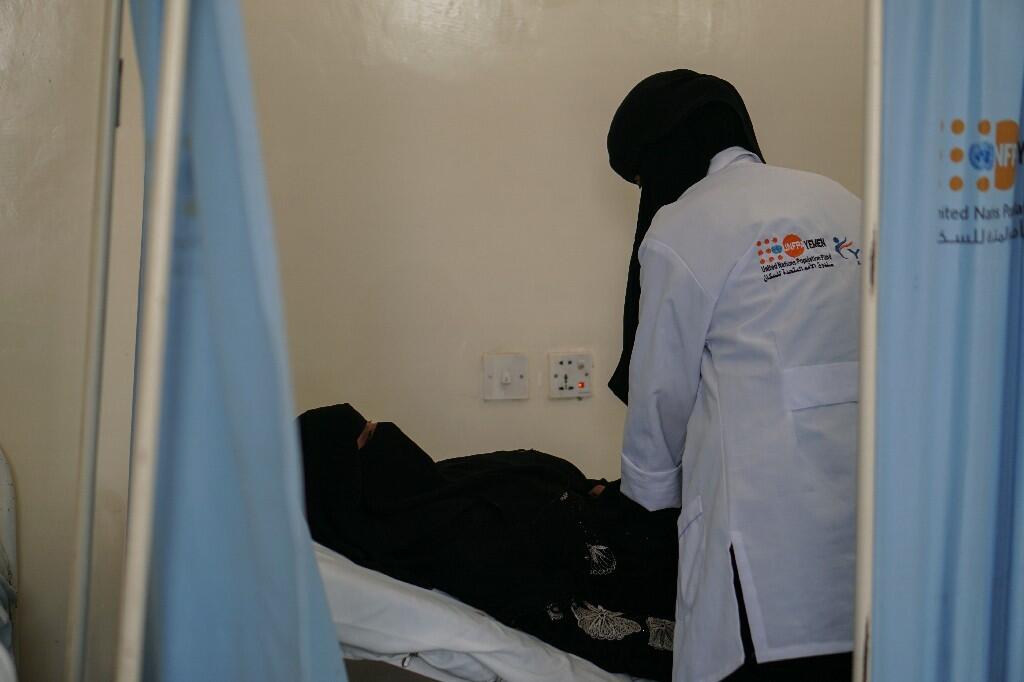I would like to share with you my suffering with obstetric fistula.
I got married at the age of 15, Shortly after marriage, symptoms of pregnancy began to appear.
We live in a rural area, which is very close to the fighting and where there are no health centers. Despite the pain and suffering I went through, I had no access to quality reproductive health services.
I went into labor in dire straits. A woman from my village came to me to help. The delivery lasted three days. The woman couldn't help and I felt my body torn apart.
My husband decided to take me to the city hospital. My journey there lasted for more than eight hours, and on the way, I gave birth naturally after severe and unbearable suffering.
We both arrived at the hospital in a miserable condition. I was admitted to the intensive care unit while the newborn was sent to the neonatal nursery as she was struggling for her life.
A few days later, I left the hospital and later I started to suffer strange symptoms that included my inability to control the outlets of urination and defecation. My mother knew that I suffered from Fistula.
I hid it from my husband and decided to live in my family's house until I recovered. After two months, I went back to the same hospital, "Al-Thawra Hospital, Sana'a." where I was told to come back in a month because that kind of operation was not available at that time.
Sadly, I lost my husband in the bombardment that targeted our village the same day we should have returned to the hospital. This news came down to me like a thunderbolt, I did not know what to do. Do I grieve for myself, for my sick child, or my murdered husband?
Three months later, a relative took me to the hospital. There was a specialist who received me, and preparations for the operation began.The operation went ok and I started to recover from fistula.
It is true that I live in oppression and pain for my husband and relatives who were killed in the bombing, but I was happy to recover from fistula and regain my health back to be able to take care of my child.
Now, I am living a normal life with my only child and I am taking care of her very well.
In Yemen, UNFPA has supported the establishment of three fistula units across Yemen. Since 2018 , Nearly 200 fistula surgeries have been successfully performed free of charge. UNFPA is also helping to build skills of health personnel in treating obstetric fistulas with advanced training. In addition, UNFPA has created and strengthened a network between community volunteers, community midwives, reproductive health and fistula experts from almost all governorates to help women suffering from fistula get the services they need, including providing free transportation from rural areas.


